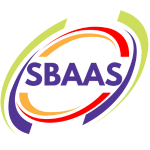Attracting and Retaining Talent: HR Insights for the Hospitality Industry
The labour-intensive hospitality industry is competitive and comprises young, unskilled, low-skilled, casual workers, including migrants. The macroeconomic, political, and social factors impact the hospitality industry’s external and internal labour markets. For instance, the hospitality industry in Sydney employs more migrants because it is a hub for international students and businesses. Thus, post-pandemic cities like Sydney, which heavily rely on migrant workers, have to face labour shortages due to visa backlogs or economic recession. Such factors pushed the locals to work double shifts, which led to burnout and leaving their jobs. In such scenarios, businesses are compelled to compete against other businesses and have a limited pool of available workforce.
Such internal and external markets, including demographic changes, demand for a young workforce, and increased participation from women, might directly affect HR practices, including employee/industrial relations, recruitment, and retention in response to variable demand.
The Role of Employer Branding
Employer branding is a critical strategy to attract and retain the right workforce in stiff competition for skilled expertise. A business can build its employer brand, which would help to differentiate the business from its counterparts, compelling the right talent to join their work culture. The business can highlight its values and work ethics by showcasing a positive and inclusive work environment. This strategy is somewhat cost-effective for small businesses that don’t want to spend too much on marketing and advertising. They can maintain their online presence through social media platforms, sharing employees’ testimonials and success stories regarding career growth and demonstrating long-term career opportunities.
Design Purposeful Jobs
Job designing is designing and customising jobs to satisfy stakeholders’ interest in looking for positions. Job design must be detailed, clear and unambiguous, covering every aspect of the job profile, including job conditions, work hours, knowledge, skills (social), standard of performance, duties, and responsibilities. The design must be based on the expectations of the employer, employee, and customer. For instance, the job design of a fast-food chain may focus on speed during service delivery, whereas a concierge position would require soft communication skills as a front-line staff member.
Job design must clearly outline the aspects of job rotation or job enlargement. For instance, employees can be asked to rotate between front-of-house and back-of-house roles, developing a broader skill set. This will help the HR manager to identify high-potential employees for leadership roles.
The other aspect of job design is job enrichment, which highlights various skill sets and task variety. For instance, a chef may create a new menu item from conceptualisation to presentation. What needs to be understood is that HR practices, before recruiting the workforce, must emphasise roles over jobs and encourage staff to take on responsibilities aligned with the business’s goals, making them aware of what the business expects from them during their employment.
Attracting and Hiring the Right Candidate
Recruitment is crucial in attracting suitable applicants for specific jobs to select the most appropriate candidate. HR practices in the hospitality industry lack systematic recruitment procedures. The recruitment and selection decisions are made in an informal, ad hoc and reactive manner.
The recruitment process involves having essential information like a job description, personnel specifications, and an understanding of the labour market. The process can be divided into two aspects, i.e., internal and external recruitment.

